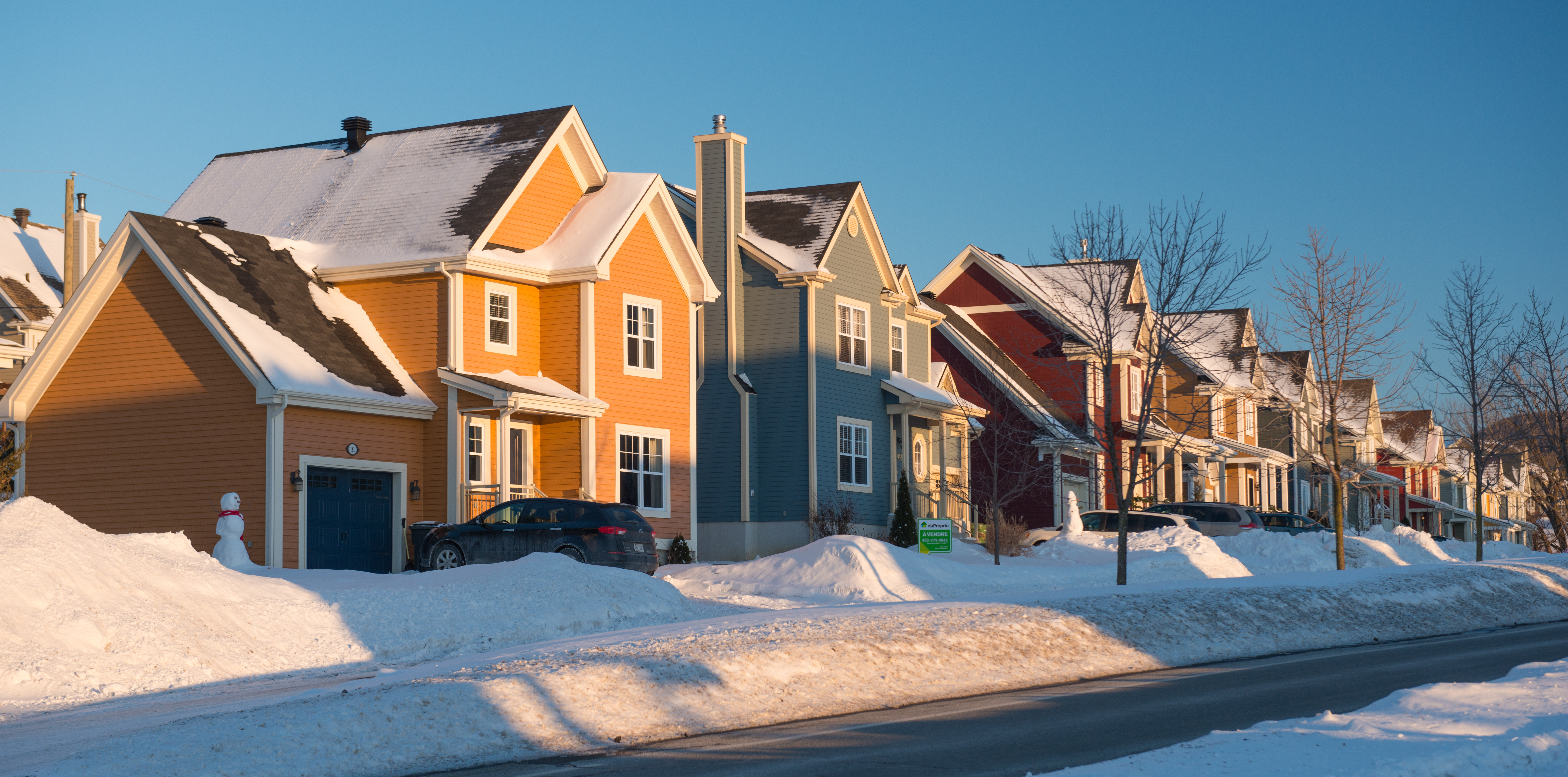Winterproof your home
Posted Friday, November 13, 2020

Winter is coming, and there is no telling what harsh weather might be headed our way. Prepare early and reap the rewards of extra warmth in your home through these coming months – and most importantly, avoid the Heating Bill Monster. This guide will take you through how to 'winterproof' your home.
First, let’s look at ways to keep the bills down:
Crucial heat loss areas:
Roofing and loft
Up to 25% of your home’s heat is lost via convection, conduction and radiation from the roof. Heat rises naturally, escaping via the roof and pulling cold draughts in from below.
- Seal any gaps leading to the loft and check the attic floor for holes and cracks
- Get your roof inspected for any failing tiles
- Install insulation – commonly used are cellulose fiber, foam and fiberglass. More info on grants for loft insulation from Money Saving expert.
Gutters
- Clear-out leaves from gulleys and guttering to enable proper water drainage and avoid frozen blockages. Overflowing water will cause damp damage to walls.
- Insulate external drain pipes that are used for central heating purposes.
Walls
According to the Energy Saving Trust, ~50% heat is lost through walls around the typical home. You can find out more on how to save energy in your home, on their website. Additionally, why not see if you qualify for the government's energy grant scheme?
- Line radiators on external walls with aluminium to reflect heat back into the house
- Bleed your radiators regularly, this will avoid cold spots, and worse - expensive plumber bills if you get a blockage.
- Put a shelf above radiators (rather than letting it escape through the ceiling)
- Move furniture which may be blocking the radiator and absorbing heat
Windows
- Check for any cracks or leaks, now is the time to get them caulked.
- Replace any 'blown' panes
Doors
- Shut doors between rooms not in use
- Make a draught excluder for rooms which are especially draughty (here’s a simple tip - use a long sock and stuff with other material! - here's how)
- Seal the gaps around your doorways and windows using insulating strips
- Look out for uncovered keyholes, letterboxes and cat-flaps
Floors – The National Energy Foundation say floors can be attributed to ~10% of heat loss in homes which have no floor insulation.
- Check for gaps and cracks, and use a silicone-based filler to address them
- Cover wooden floorboards with rugs
Chimneys
- Close the flue of any unused hearths and consider investing in a chimney balloon
Boilers - Energy.Gov say “non-insulated hot water pipes reduce water heat by 2-4 degrees” – meaning your energy usage increases in trying to keep your water hot. Not only do bare hot water pipes waste your money, but they also make you wait longer for hot water – wasting precious water resources.
- Switch-off unused radiators i.e. in a spare room
- Insulate the hot water tank and surrounding pipes - a jacket sets you back ~£10 but could save up to ~£35 annually in keeping your water hot for longer.
- Pipe insulation consists of foam tubing on the pipes between your hot water cylinder and boiler, and costs as little as ~£5.
- Get a thermostat if you do not already have one. If you have one, set to the lowest temperature you can tolerate. Instead of turning the heating UP, switch it on an hour or two EARLIER at the same temperature. If you have individual thermostats on your radiators, you can set the rooms you use to the perfect temperature.
- Update that boiler! If it is more than six years old, it's likely to be sitting at ~60-70% efficiency, whereas new boilers reach ~95%.
- Lastly – check you Carbon Monoxide detectors – with less fresh air in the building you don’t want the batteries to run out when you might need it!
Externally - do's and don'ts
- Make your external surroundings safe, with grit or salt to hand, and make sure you have a shovel at the ready, with harsh weather coming at increasingly short notice it’s surprising how many of us Brits simply are not prepared in time.
- Disconnect garden hoses – frozen water in the hose can cause issues.
- Be aware of species that may be hibernating, such as bats, which will often roost in the eaves of your house. Frogs will be hibernating in the bottom of ponds – so now is not the time to do a pond clean. Do not break the ice on ponds – this will disturb fish and amphibians – instead make a small hole using a hot pan.
- Don’t set fire to autumn leaves without first checking for small animals burrowing underneath.
- According to the RSPCA “All birds, their nests and eggs are protected by law and it is therefore an offence, with certain exceptions (see Exceptions), to: Intentionally kill, injure or take any wild bird. Intentionally take, damage or destroy the nest of any wild bird while it is in use or being built.”
Am I doing the right thing?
According to the Energy Saving Trust (EST); "65% of people report pulling on a jumper to stay warm indoors, while 42% wrap up in a blanket – but only 15% draught-proof their homes" Also "less than 30% of people bleed their radiators".
Are you skimping on draught-proofing? Do you bleed the radiators? This is food for thought - it may be easier than you think to achieve a warmer home this winter.
Renting?
As a final touch, we'd like to offer advice for renters - studies have shown that whilst 29% of homeowners experience heating struggles, 48% renters have the same problem. Why? EST advise that private tenants should ask their landlords for better insulation. You may be eligible for a grant - if you live in an energy inefficient property your landlord is liable to bring it to EPC 'E' rating (at least). Make sure you are not being hard-done-by!

